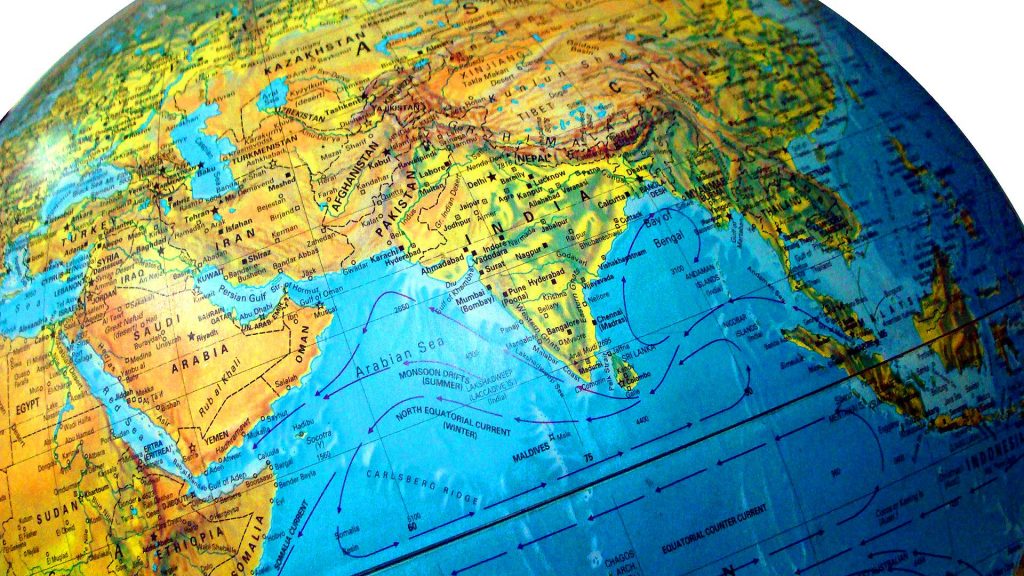
History runs at its own pace. It is frustratingly slow and staid sometimes. Darkness and disillusionment seem never ending. But suddenly it races ahead like a Thoroughbred, leaving contemporaries in dismay and historians in disarray. The world is in the midst of such a racing pace today. The Cold War years of the last century, when everything was in a standstill, had given way to a temporary unipolar world order towards the end of the 20th Century. But as the New Century awoke to the new realities of multipolarity, the momentum of history surpassed all projections and imaginations. The Secretariat was unconquerable in early 1970s, the lone horse at the head of the stable. But in just a few years, too many Arabian horses crammed the tracks, all galloping ahead at incredible burst of speed.
In just three decades, the world has swung from bipolarity to heteropolarity through unipolarity and multipolarity. Its pace is so dazzling that many still do not realize that we have already moved beyond the multipolar world order. There are too many non-state poles that defy geographical boundaries and occupy demographic spaces – from business corporations to non-governmental activists to religious empires to terrorist traders. They are more powerful than many countries today, preoccupying the multilateral bodies to scramble for ways and means of dealing with the new challenges – in space, cyber, artificial intelligence, robotics, frontier technologies and environment.
How much have countries changed suddenly! Had anybody anticipated the rise and fall of a Donald Trump in just four years in America and the sudden decline of the country in global affairs? Had anyone anticipated the rise of a Xi Jinping, who would simply turn the Dengist reticence of ‘hiding the strength and biding the time’ upside down and transform China into a most aggressive wolf-warrior nation in the world? The European Union, a much-promised economic and political alliance of the last century is struggling to remain afloat and relevant. A new, and the world’s largest economic alliance is taking shape in the form of the RCEP in India’s own neighbourhood, and in its absence. The Americans and the Europeans dreamt of ruling the world economy for centuries. But the global power axis has shifted away in just five decades from the Pacific-Atlantic to the Indo-Pacific.
That pandemics will cause havoc to populations was known to the mankind. But a pandemic would come to completely destabilize the world order and pave the way for a new one was hardly anticipated by any a few years ago. The Covid pandemic has not only caused a major healthcare upheaval in the world, it is in fact bringing about a major redrafting of the world order. The world, in next few years, is going to be a completely transformed place from what we have seen in the last several decades. In a way it is a return of the post-World War II moment.
Franklin Roosevelt, the President of America had set in motion the making of a new world order by committing America’s entry into the World War II in 1940s. The State of the Union address he delivered on January 6, 1941 highlighted the objectives of America’s mission in the war. That speech of Roosevelt, famously known as “Four Freedoms Speech” in which he talked about securing – freedom of speech, freedom of worship, freedom from want and freedom from fear – became the basis for the new world order that came into existence after the War through the United Nations. As the UN turned 75 this year, the world is staring at its decay and the prospect of a new world order taking shape.
Sadly, when the countries are forced into the remaking of the world order, no clear agenda or articulation is to be seen on the horizon. No Roosevelt around the corner. Yet events happen. History will not wait for anyone. It marches on. The world will acquire a renewed shape and form as we watch in awe and anticipation.
The danger, though, is the inaction of the wise and the able. A lesser known Ethiopian statesman Haile Selassie once warned: “Throughout history, it has been the inaction of those who could have acted; the indifference of those who should have known better; the silence of the voice of justice when it mattered most; that has made it possible for evil to triumph”.
I am delighted to know that the Vishwa Samvad Kendra, Bengaluru is embarking on the launch of the ‘Samvada World’ portal to educate people about the geo-politics of our times. I am sure that it will emerge into a powerful medium for educating the leaders and the led, encouraging them from lethal inaction into learned action. At a time when the world stands at a crossroads, India has the potential and prescience to guide the mankind. But our problem is the absence of a strategic culture. Reticence and romanticism have masqueraded as policy and pragmatism for many decades after independence.
Wish Samvada World succeeds in its endeavour to enlighten us into a new culture of geo-politics and geo-strategy.
(Author is Thinker, Author and Director, India Foundation)

Precisely. India should be more proactive in it’s global mission. Going forward, a civilizational country like India should forge more alliances and pioneer new forums for a better world.
Even I do think and agree to Ram Madhav sir that India needs to put down the realist heels and act to influence and increase partnership with other countries of the World
All the best
बहुत सुन्दर लगा
Very nice
Very powerful and factual narration. Needs wider dissemination than through Samvada Kendra
nice elaboration
Geopolitical situation and the role of India are explained well in this article.